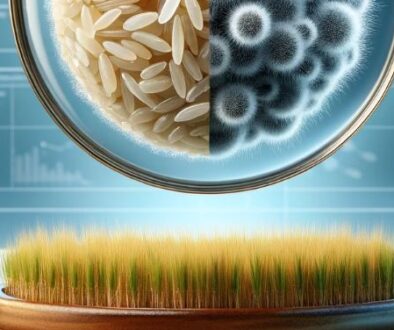Analysis of Sensory Characteristics and Peptide Composition in Peas: A Correlation Study
Explore the correlation between pea peptides’ sensory characteristics, enzymatic hydrolysis, debittering treatments, and enhanced antioxidant activity in this insightful study.
Keywords: Pretreatment; enzymatic hydrolysis; pea peptides; bitterness; antioxidant activity
Abstract
This study delves into the enzymatic hydrolysis characteristics of pea protein, exploring the optimization effects of pretreatment on pea peptide preparation, and establishing an effective debittering process. It further evaluates the antioxidant activity of pea peptides at the cellular level, providing insights into the interplay between free amino acids, molecular weight distribution, and sensory properties.
Introduction
The molecular weight distribution and composition of free amino acids in protein hydrolysates are primary factors contributing to sensory differences. This research establishes a correlation between these elements before and after debittering treatments using a Partial Least Squares Regression (PLSR) model, aiming to reduce the bitterness of pea peptides while preserving their antioxidant properties.
Materials and Methods
- PLSR Model Analysis: Correlation between free amino acids, molecular weight distribution, and sensory characteristics was analyzed using PLSR models.
- Infrared Spectroscopy and Nuclear Magnetic Resonance (NMR) Analysis: Investigated structural changes in pea peptides before and after debittering treatment.
- Antioxidant Activity Evaluation: The in vitro antioxidant activity of pea peptides was assessed through DPPH and ABTS radical scavenging assays and metal chelating activity tests.
- Cell Viability and Morphological Impact: The effect of pea peptides on HepG2 cell morphology and viability was studied using MTT assays and microscopic observation.
- Oxidative Stress Model in HepG2 Cells: An H2O2-induced oxidative stress model was utilized to evaluate the protective effects of pea peptides against cellular oxidative damage.
Results and Discussion
- PLSR Analysis: Significant correlation was found between sensory bitterness and the composition of sulfur-containing amino acids (Met and Cys), bitter amino acids (Leu, Tyr, Phe), and low molecular weight peptides.
- Spectroscopic Analysis: FTIR and 1H NMR spectra indicated structural changes and interactions between pea peptides and debittering agents, suggesting mechanisms behind the reduced bitterness.
- Antioxidant Activity: Pea peptides exhibited strong in vitro antioxidant activities, with debittering treatment affecting these properties to varying degrees.
- Cell Viability and Morphology: Both debittered and non-debittered pea peptides did not adversely affect HepG2 cell morphology or viability within certain concentration ranges.
- Oxidative Stress Mitigation: Pea peptides demonstrated the ability to reduce ROS and MDA levels in HepG2 cells, enhancing the cells’ antioxidative defense system by modulating SOD, CAT, and GSH-Px enzyme activities.
Conclusion
The study systematically explores the enzymatic hydrolysis of pea protein and the impact of debittering treatments on peptide sensory characteristics and antioxidant activity. It concludes that certain debittering treatments can effectively reduce bitterness while maintaining or even enhancing the antioxidant properties of pea peptides. Future applications could consider using debittered peptides at higher concentrations to achieve comparable antioxidative activities to those before debittering.
This research contributes to the field by providing a comprehensive analysis of pea peptides’ sensory and functional properties, offering a foundation for developing novel antioxidant supplements and improving the sensory profiles of pea protein-based products.
For more further detailed information of this research, feel free to contact our team for asssistance.
Original research by Xia Yixuan, Zhang Hui, Hui Ju, Mu Wanmeng (Food Engineering, Jiangnan University, Wuxi 214122)
About ETprotein:
ETprotein, a reputable rice protein Chinese factory manufacturer and supplier, is renowned for producing, stocking, exporting, and delivering the highest quality organic bulk vegan protein and plant proteins. They include Organic rice protein, clear rice protein, pea protein, clear pea protein, pumpkin seed protein, sunflower seed protein, mung bean protein, etc. Our offerings, characterized by a neutral taste, non-GMO, allergen-free attributes, cater to a diverse range of industries. We serve nutraceutical, pharmaceutical, cosmeceutical, veterinary, as well as food and beverage finished product distributors, traders, and manufacturers across Europe, USA, Canada, Australia, Thailand, Japan, Korea, Brazil, and Chile, among others.
Our specialization includes exporting and delivering tailor-made protein powder and finished nutritional supplements. Our extensive product range covers sectors like Food and Beverage, Sports Nutrition, Weight Management, Dietary Supplements, Health and Wellness Products, and Infant Formula, ensuring comprehensive solutions to meet all your protein needs.
As a trusted company by leading global food and beverage brands and Fortune 500 companies, ETprotein reinforces China’s reputation in the global arena. For more information or to sample our products, please contact us and email sales(at)ETprotein.com today.












